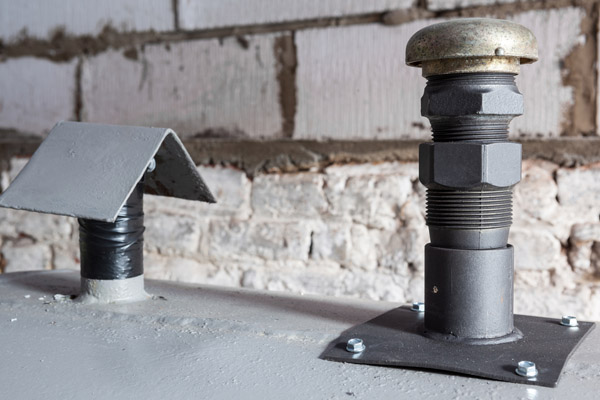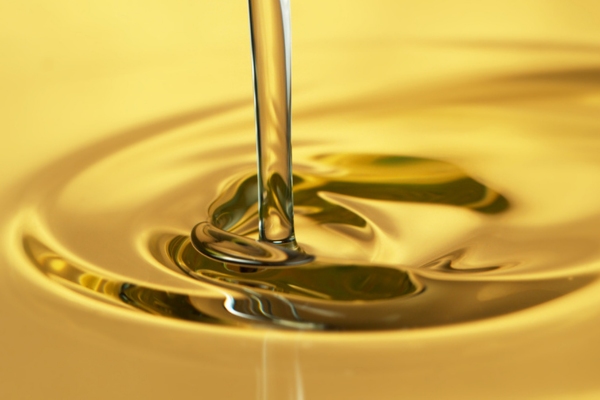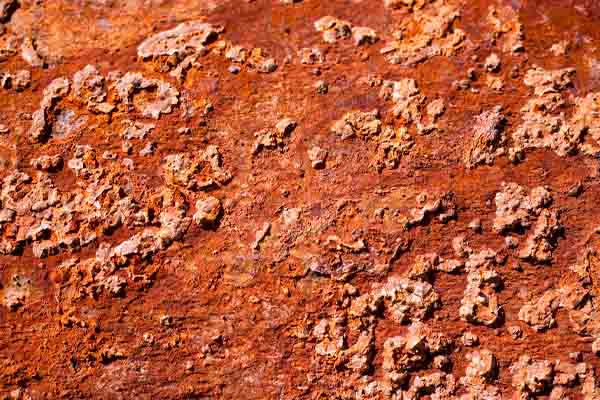Oil Tank Condensation: What You Ought To Know

If you’ve ever noticed water droplets on your oil tank, it could be more than just a surface issue. That moisture can be a sign of oil tank condensation, a problem that can lead to significant damage to your heating system if left unchecked.
At McAllister Energy, your trusted heating oil company in Southern New Jersey, we focus on preventing and solving oil tank condensation issues to protect your home’s comfort.
In this article, you’ll learn about the causes of oil tank condensation, how to prevent tank moisture with proper fuel management and additives, and when it’s time to call in professional help for heating oil tank care.
Protect Your System from Moisture: Schedule an oil tank inspection with McAllister Energy to catch condensation early. Call us now!
Battling Moisture Buildup: Preventing Condensation in Your Oil Tank
Contents
- 1 Battling Moisture Buildup: Preventing Condensation in Your Oil Tank
- 2 What Is Oil Tank Condensation?
- 3 How Heating Oil Tank Levels Affect Condensation
- 4 Role of Fuel Oil Additives in Moisture Control
- 5 Other Key Causes of Oil Storage Tank Condensation
- 6 Risks & Consequences of Prolonged Fuel Tank Moisture
- 7 Detecting Condensation in Heating Oil Tank Early
- 8 Oil Storage Tank Condensation: DIY Preventive Measures
- 9 Professional Fuel Oil Tank Solutions from McAllister Energy
- 10 Oil Tank Condensation: FAQs
- 10.1 How Quickly Can Condensation Lead to Tank Corrosion?
- 10.2 Can Fuel Additives Eliminate All Moisture in My Oil Tank?
- 10.3 Are Dehumidifiers Effective for Reducing Tank Condensation?
- 10.4 How Does Indoor Ventilation Impact Oil Tank Moisture Levels?
- 10.5 Should I Install a Desiccant Breather or Water‑Blocking Filter?
- 11 Conclusion
- 12 Contact McAllister Energy for Trusted Heating Oil Delivery Services

Proper tank management is crucial in minimizing moisture buildup. Understanding the causes and solutions can ensure your oil tank remains in top condition.
Complete Oil Tank Care: Combine oil tank inspections and timely heating oil delivery with McAllister Energy. Call us now!
What Is Oil Tank Condensation?

Oil tank condensation occurs when warm, humid air meets a cooler tank surface, forming water droplets. This is known as tank surface moisture, a common form of condensation.
It’s crucial to distinguish this from water entering the fuel itself, as the latter can cause more severe issues, including contamination of the heating oil. While condensation is a natural process, it can be problematic if not managed properly.
Steel tanks are particularly vulnerable to condensation, as they tend to rust when moisture accumulates, while fiberglass tanks are less likely to form or hold moisture, offering better resistance. Understanding the condensation definition and how steel vs fiberglass tank materials react to moisture is key to preventing long-term damage.
Prevent Hidden Tank Damage: Book a professional oil tank inspection in Southern New Jersey with McAllister Energy. Contact us today!
How Heating Oil Tank Levels Affect Condensation
The oil level in your tank plays a significant role in controlling condensation. When there is empty space, or headspace, above the oil, it allows humid air to collect, which can condense on the cooler walls of the tank. This headspace condensation is a common cause of moisture buildup.
To minimize this, it’s essential to keep your oil tank full. Maintaining a fill level of 80–90% reduces the amount of headspace, limiting the opportunity for moisture to form.
Additionally, seasonal refill strategies, such as scheduling top-off oil deliveries before periods of high indoor humidity or temperature swings, can further reduce the risk of condensation and keep your tank in optimal condition.
Role of Fuel Oil Additives in Moisture Control

Fuel oil additives are crucial in controlling moisture and preventing damage to your heating system. Examples include:
- Anti-Condensation Additives: Desiccant-based and water-absorbing formulas bind free moisture inside the tank, preventing it from affecting the fuel. These condensation inhibitors help maintain oil quality by reducing the risk of water contamination.
- Biocides: These are used to prevent microbial growth, such as sludge formation or “diesel bug,” which can occur when water contaminates the fuel.
To ensure effectiveness, it’s important to follow the manufacturer’s guidelines for proper dosage and mixing. For the best results, consult your heating oil delivery company for advice on the right additive concentration and timing of application.
Upgrade to a Reliable Tank: Trust McAllister Energy for seamless oil tank replacement services. Call now!
Other Key Causes of Oil Storage Tank Condensation
Tank condensation causes can stem from several factors beyond just humid air. Temperature differentials, such as rapid outdoor cooling of a basement or an uninsulated room, can chill the tank walls, leading to condensation.
High indoor humidity sources, including cooking, shower steam, and poor ventilation, contribute to excess moisture. This increases the likelihood of condensation in the tank.
Additionally, inadequate insulation and placement, such as installing the tank on exterior walls or lacking proper tank jackets, can make the issue worse. To reduce condensation, it’s important to understand the tank insulation’s importance and address humidity in the boiler room to protect your system.
Risks & Consequences of Prolonged Fuel Tank Moisture

Prolonged moisture in the fuel tank can result in a range of serious issues that affect the tank and the oil heating system.
- Internal Heating Oil Tank Corrosion: Tank corrosion effects are a major concern when moisture accumulates inside the tank. The constant presence of water can cause pitting and rust beneath the paint, which weakens steel tanks and accelerates corrosion, potentially leading to tank leaks or failure.
- Fuel Water Contamination: Water in fuel risks are significant because the water layer that forms at the bottom of the tank encourages microbial growth and the formation of sludge. This can lead to clogging of fuel filters and contamination, ultimately impacting the heating system’s efficiency.
- Oil Heating System Performance Issues: Water accumulation in fuel can cause burner performance issues, such as clogged fuel lines and burner misfires. This results in inefficient heating cycles, which reduce system performance, increase fuel consumption and can lead to costly repairs.
Replace Your Aging Oil Tank: Rely on McAllister Energy for expert tank replacement and peace of mind. Contact us today!
Detecting Condensation in Heating Oil Tank Early
Spotting tank condensation early is essential to prevent significant damage and ensure the continued efficiency of your heating system. Regular inspections can help you identify issues before they escalate.
- Visual Oil Tank Inspection: To spot tank condensation, look for signs such as rust streaks, drips at seams, or pooled water under the tank. These are clear indications that moisture is accumulating inside the tank and could lead to corrosion.
- Fuel Gauge Fluctuations: Fuel gauge anomalies, such as erratic level readings, may occur when water sloshes inside the tank. Since water has a higher density than oil, these fluctuations can signal that water is in the tank, affecting your fuel levels.
- Water Test Methods: To test water in the oil tank, use clear syringe sampling or apply water-finding paste. These methods help confirm the presence of moisture. It’s important to have a professional like McAllister Energy perform these tests to ensure accurate results and proper handling of the tank.
Oil Storage Tank Condensation: DIY Preventive Measures
To prevent oil tank condensation, there are several DIY tank moisture prevention methods you can implement. First, maintaining high heating oil fill levels by scheduling deliveries ensures minimal headspace, reducing the chances of moisture buildup.
Improving ventilation and dehumidifying the area where your oil tank is stored can also help. Installing exhaust fans or portable dehumidifiers in basements is an effective solution for reducing humidity.
Additionally, adding tank insulation, such as jackets, foam boards, or spray insulation, helps stabilize the tank temperature and reduces the risk of condensation. It’s recommended to discuss tank insulation DIY options with your home heating oil provider to ensure proper installation and effectiveness.
Ensure Fuel Quality & Integrity: Get a tank inspection and fresh oil delivery from McAllister Energy. Contact us today!
Professional Fuel Oil Tank Solutions from McAllister Energy

When it comes to preventing and addressing oil tank condensation, McAllister Energy offers expert professional tank condensation solutions. Our comprehensive heating oil storage tank inspections involve checking for signs of corrosion, water ingress, and insulation gaps to ensure your system is protected. We also provide oil tank additive service, mixing anti-condensation and biocide additives directly in the tank to prevent moisture buildup and microbial growth.
Additionally, our advanced mitigation services include installing desiccant breathers and rewiring tank jackets, which help to control humidity levels and stabilize the temperature inside the tank, ensuring long-term system reliability and performance.
Never Run Out of Fuel: Sign up for heating oil delivery from McAllister Energy and keep your home warm. Call us now!
Oil Tank Condensation: FAQs

How Quickly Can Condensation Lead to Tank Corrosion?
Even minimal moisture can start the rusting process within just a few months if left unchecked. Each cycle of warm, humid air hitting a cold steel surface accelerates pitting and metal fatigue. By tackling condensation early – through proper tank fill levels, insulation, and humidity control, you can prevent surface rust from evolving into structural tank damage that requires expensive repairs or replacement.
Can Fuel Additives Eliminate All Moisture in My Oil Tank?
Fuel additives are formulated to bind free water and inhibit microbial growth, significantly reducing moisture-related issues. However, they cannot remove water that has already settled at the bottom of the tank. To manage residual moisture effectively, combine regular additive treatments with periodic water‑separating filter changes and scheduled inspections to keep your fuel clean and your system running smoothly.
Are Dehumidifiers Effective for Reducing Tank Condensation?
Yes – both portable and whole‑house dehumidifiers can lower ambient humidity by 30–50%, dramatically cutting the moisture available to condense on tank walls. Placing a dehumidifier in the tank room helps maintain a consistently drier environment, reducing the frequency and volume of condensation without ongoing manual intervention.
Stay Comfortably Fueled: Schedule your next heating oil delivery with McAllister Energy. Reach out now!
How Does Indoor Ventilation Impact Oil Tank Moisture Levels?
Proper airflow prevents humid, stagnant air from lingering around the tank. Installing exhaust fans or occasionally opening access panels and doors encourages exchange with drier outside air. This airflow disruption breaks up condensation cycles and helps keep relative humidity around the tank below critical levels, which leads to water buildup.
Should I Install a Desiccant Breather or Water‑Blocking Filter?
Desiccant breathers absorb moisture from incoming air while water‑blocking filters capture droplets before they enter your fuel line. Using both offers layered protection: breathers on the tank vent keep the headspace dry, and in-line filters safeguard your burner by removing any remaining water. Together, they help maintain fuel quality and extend equipment life.
Conclusion
Understanding the mechanics of condensation, maintaining full tank levels, and using additives are key to preventing oil tank condensation and protecting your heating system. These steps help reduce moisture buildup, prevent corrosion, and ensure efficient performance. By staying proactive, you can avoid expensive repairs and maintain the reliability of your heating system.
Concerned about moisture in your oil tank? Contact McAllister Energy today for an oil tank inspection, additive treatment, or oil tank replacement in Southern New Jersey. Our local oil tank experts specialize in heating oil services and are ready to help you maintain a safe and efficient heating system.
Comprehensive Tank Solutions: Inspect, replace, and deliver – McAllister Energy handles all your oil tank needs. Call us now!
Contact McAllister Energy for Trusted Heating Oil Delivery Services
McAllister Energy is dedicated to ensuring that homes and businesses throughout Southern New Jersey remain warm and comfortable with our reliable heating oil delivery services. We prioritize delivering high-quality heating oil quickly and efficiently, ensuring you experience the warmth you need without any hassle. Our commitment to superior service means offering competitive rates and transparent, straightforward services, always placing your comfort first.
McAllister Energy offers a variety of heating oil delivery plans and financing options, enabling customers to customize their fuel delivery to perfectly suit their needs. We ensure that each customer receives personalized service to keep their home warm and comfortable all winter long.
In addition to heating oil delivery, McAllister Energy offers a full range of HVAC services, making McAllister Energy a one-stop shop for all of your home comfort needs. From installation and maintenance to emergency repairs, we cover all aspects of HVAC care.
Choosing McAllister Energy means partnering with a dependable provider. With a reputation for consistent, dedicated service and a strong emphasis on customer satisfaction, McAllister Energy has become a trusted name in the community. Contact us today to get started!
You can click here to contact us now or call us at (856) 665-4545 to find out more! Click the link to view our service area.

Related Articles:
- Avoid Running Out of Heating Oil: Selecting the Right Tank Size
- What You Need to Know About the Lifespan of Your Heating Oil Tank
- Revolutionizing Heating Oil Tanks: The Latest Safety and Design Innovation
- How Much Heating Oil Will I Use A Day: What To Expect
- Understanding Why Heating Oil Prices Vary Throughout The Year